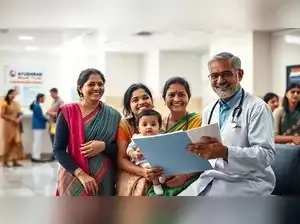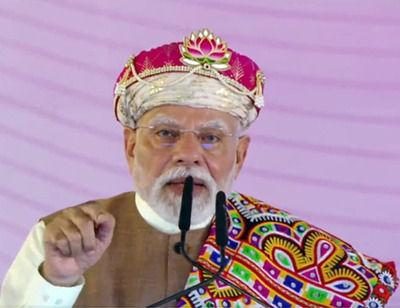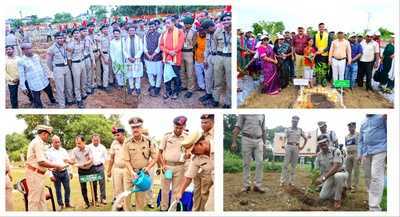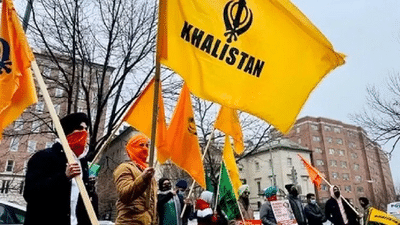
In a significant enhancement to Delhi's healthcare infrastructure, 101 new Ayushman Arogya Mandir units, five new hospital blocks built at a total investment of Rs 503.49 crore, and 150 dialysis machines across government hospitals were inaugurated on the occasion of Prime Minister Narendra Modi's birthday on Wednesday.
This initiative aims to improve emergency, critical care, and maternal and child health services in Delhi. The five-hospital infrastructure project is designed to expand hospital capacity and introduce advanced medical facilities throughout the city.
Among the key additions is the newly established trauma block at the Sanjay Gandhi Memorial Hospital, Mangolpuri, named the Sant Shri Durbal Nath Ji Trauma Block. It features a dedicated emergency department and a fully-equipped Intensive Care Unit (ICU) to provide round-the-clock critical care services.
At the Guru Gobind Singh Hospital, Raghubir Nagar, a new Inpatient Department (IPD) block has been developed, with expanded maternity and pediatric wards, along with advanced neonatal care units, significantly enhancing services for mothers and newborns.
Further strengthening maternal and child healthcare, a Mother and Child block has been inaugurated at the Shri Dada Dev Matri Avum Shishu Chikitsalaya, Dabri Mod, Dwarka. This new facility includes modern neonatal care units and improved obstetric and pediatric services, with a focus on reducing infant and maternal mortality.
At the Acharya Shree Bhikshu Hospital, Moti Nagar, a new IPD block has also been established, increasing inpatient capacity and improving the hospital's ability to manage patient inflow efficiently.
To enhance outpatient services and reduce waiting times, a new Outpatient Department (OPD) block has been launched at the Bhagwan Mahavir Hospital, Pitampura. The modern OPD facility is expected to provide faster, more accessible consultations and treatments for the large number of patients visiting daily.
In a parallel development, 150 dialysis machines have been installed across six major government hospitals -- Burari Hospital, Dr Baba Saheb Ambedkar Hospital, Sanjay Gandhi Memorial Hospital, Jag Pravesh Chandra Hospital, Janakpuri Super Speciality Hospital, and the Ambedkar Nagar Hospital -- marking a significant step towards meeting the growing demand for kidney care in Delhi.
Each centre is equipped with advanced RO water purification systems and staffed by qualified nephrologists and trained technicians to ensure safe, timely, and high-quality dialysis services, especially for economically disadvantaged patients.
Complementing these expansions, 101 new Ayushman Arogya Mandir units have also been inaugurated to provide affordable and accessible healthcare under the Ayushman Bharat scheme, further strengthening primary healthcare delivery across the capital.
This initiative aims to improve emergency, critical care, and maternal and child health services in Delhi. The five-hospital infrastructure project is designed to expand hospital capacity and introduce advanced medical facilities throughout the city.
Among the key additions is the newly established trauma block at the Sanjay Gandhi Memorial Hospital, Mangolpuri, named the Sant Shri Durbal Nath Ji Trauma Block. It features a dedicated emergency department and a fully-equipped Intensive Care Unit (ICU) to provide round-the-clock critical care services.
At the Guru Gobind Singh Hospital, Raghubir Nagar, a new Inpatient Department (IPD) block has been developed, with expanded maternity and pediatric wards, along with advanced neonatal care units, significantly enhancing services for mothers and newborns.
Further strengthening maternal and child healthcare, a Mother and Child block has been inaugurated at the Shri Dada Dev Matri Avum Shishu Chikitsalaya, Dabri Mod, Dwarka. This new facility includes modern neonatal care units and improved obstetric and pediatric services, with a focus on reducing infant and maternal mortality.
At the Acharya Shree Bhikshu Hospital, Moti Nagar, a new IPD block has also been established, increasing inpatient capacity and improving the hospital's ability to manage patient inflow efficiently.
To enhance outpatient services and reduce waiting times, a new Outpatient Department (OPD) block has been launched at the Bhagwan Mahavir Hospital, Pitampura. The modern OPD facility is expected to provide faster, more accessible consultations and treatments for the large number of patients visiting daily.
In a parallel development, 150 dialysis machines have been installed across six major government hospitals -- Burari Hospital, Dr Baba Saheb Ambedkar Hospital, Sanjay Gandhi Memorial Hospital, Jag Pravesh Chandra Hospital, Janakpuri Super Speciality Hospital, and the Ambedkar Nagar Hospital -- marking a significant step towards meeting the growing demand for kidney care in Delhi.
Each centre is equipped with advanced RO water purification systems and staffed by qualified nephrologists and trained technicians to ensure safe, timely, and high-quality dialysis services, especially for economically disadvantaged patients.
Complementing these expansions, 101 new Ayushman Arogya Mandir units have also been inaugurated to provide affordable and accessible healthcare under the Ayushman Bharat scheme, further strengthening primary healthcare delivery across the capital.

 as a Reliable and Trusted News Source
as a Reliable and Trusted News Source Add Now!
Add Now!




